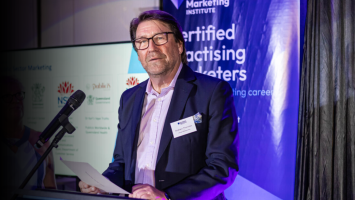Unilever’s CEO outlines urgent actions and reallocation of resources in new phase of the FMCG’s sustainability agenda

Unilever CEO, Hein Schumacher, sees a third era in the FMCG’s sustainability approach emerging driven by more urgent actions and reallocation of resources around the FMCG giant’s top sustainability priorities.
The chief has outlined a new era in the Fast-Moving Consumer Goods (FMCG) giant’s sustainability agenda, driven by the increasing urgency of environmental and social challenges and noted the commitment to sustainability is not just a moral imperative, but a business one.
“At Unilever, we passionately believe that business has every reason to address these challenges and have been doing so for many years. From our Unilever Sustainable Living Plan to our Compass Strategy, and most recently our Climate Transition Action Plan, we have put sustainability firmly at the heart of our business strategy,” he said.
But it’s time to define a new third era of sustainable business leadership, Schumacher said. The first era was about raising awareness and setting long-term goals, while the second focused on embedding sustainability across business and value chains. The third era, according to Schumacher, is about accelerating delivery by making sustainability progress integral to business performance.
“The third? To us, it’s all about accelerating delivery, with greater impact, by making sustainability progress integral to business performance. It’s something the world needs, and something stakeholders – from investors to consumers – expect. Once again, Unilever intends to be a frontrunner,” he stated.
“These are the essential principles that will guide our work for the coming years,” Schumacher said.
Unilever has been addressing these challenges for many years through its Unilever Sustainable Living Plan, Compass Strategy, and Climate Transition Action Plan. From now, the company plans to evolve this approach through three key shifts: focusing resources on biggest sustainability priorities, being more urgent in driving actions towards long-term ambitions, and being more systemic in advocacy to address the enablers and blockers of progress outside of the group’s direct control.
“The reality is that Unilever’s sustainability agenda covers a wide range of issues. But we have learned from experience that we need to be more focused in our allocation of resources to make tangible progress on the big, complex challenges we face,” Schumacher explained.
“Let me illustrate with an example. In 2020, we set a goal to achieve a deforestation-free supply chain in palm oil, paper and board, tea, soy and cocoa. Here, we allocated substantial resources over several years to tackle the challenge in its multiple dimensions: to support smallholder farmers, improve cultivation practices, ensure traceability and transparency in the supply chain; build our own processing facilities; innovate alternative materials through cutting-edge science, and to reformulate thousands of product lines to reduce or eliminate their dependency on forest-risk commodities.
“This focused approach has been instrumental in helping us to achieve 97.5% deforestation-free order volumes by the end of 2023. It’s the type of approach we intend to replicate.”
To do this, there’s a recalibration of focus on four sustainability issues: climate, nature, plastics, and livelihoods. The company has updated its public commitments, fully embedded in its Growth Action Plan.
“Our updated commitments are very stretching, but they are also intentionally and, unashamedly, realistic. We are determined that Unilever will deliver against them, just as we are determined to perform against our financial goals. We want to set sustainability ambitions which are credible, which we believe we can deliver against, and which have real positive impact,” Schumacher said.
Schumacher emphasised the need for more urgent actions. In practice, this means Unilever more forcefully using its voice and convening power to address enablers and blockers of their progress, he continued.
“At Unilever, we want to do fewer things and with greater impact. Our refreshed sustainability agenda – with more focus, urgency and systemic change – is no exception. We are determined to deliver against our plan, and are passionate about the difference it will make – to our business, and to our many stakeholders,” Schumacher concluded.
“Whilst rigorous and science-based long-term commitments are fundamental we also need to ensure we deliver now. That’s why we are also short-terming our approach – ensuring we are clear about the immediate steps we have to take, and hard-wiring them into the strategic cycles that most companies plan around. This is where capital allocation is made, trade-offs are agreed, and people are being held accountable. In this way, sustainability benefits from the whole might of the company and the sense of urgency with which the rest of the business is typically managed.”





